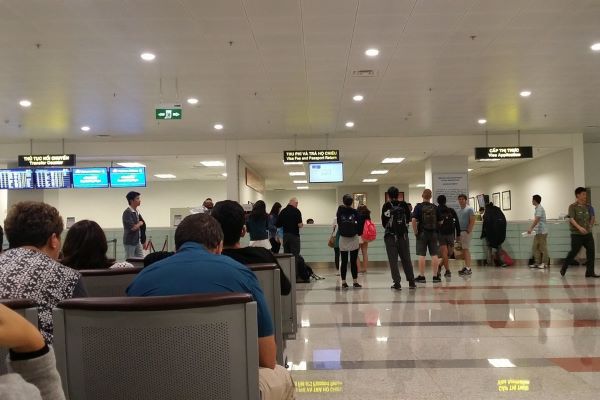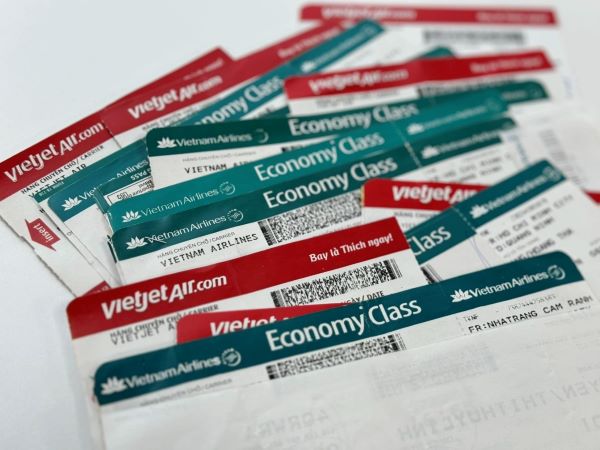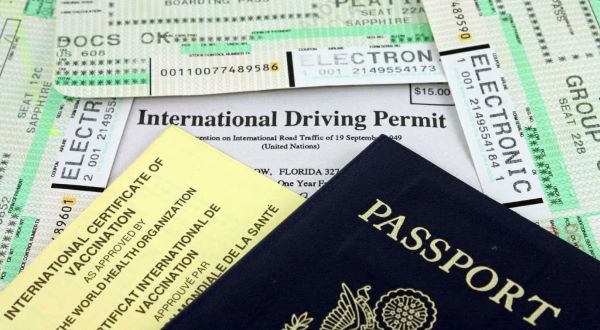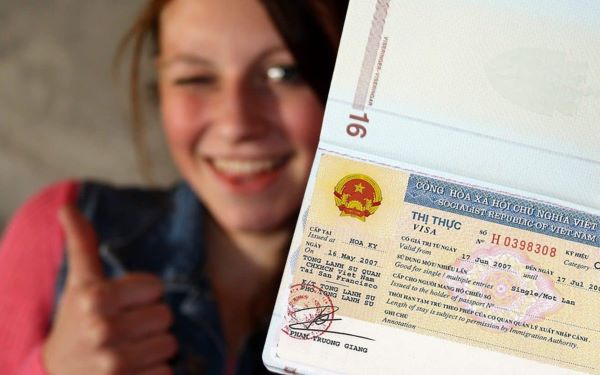Vietnam Entry Admissibility | Documents and Rules
Understanding Vietnam entry admissibility is essential for anyone planning to visit the country, whether for tourism, business, or long-term stay. Vietnam enforces specific entry conditions related to visa validity, travel history, and personal eligibility that determine whether a traveler can enter the country legally. By familiarizing yourself with these requirements in advance, you can avoid unexpected complications and ensure a smooth arrival at the border.

Know your Vietnam entry admissibility to ensure a smooth and stress-free arrival
Air tickets
Having a confirmed air ticket is not just about getting to Vietnam; it’s a critical component of vietnam entry admissibility. While not always explicitly stated as a separate document for immigration at all times, a return or onward ticket is often a prerequisite for obtaining a visa or for utilizing visa exemption programs. Immigration officers at the port of entry may request proof of your departure from Vietnam. This is to ensure that visitors do not overstay their permitted duration.

Air Tickets to Vietnam
- Proof of Onward Travel: Many countries require proof of onward or return travel as a condition for entry, and Vietnam is no exception, especially for those on visa exemption or e-visa. It demonstrates that you intend to leave the country within the authorized period.
- Airline Requirements: Airlines often enforce these rules even before you reach immigration. They may deny boarding if you cannot show a valid onward ticket, as they could face penalties for transporting inadmissible passengers.
- Flexibility vs. Certainty: While some travelers might prefer to book flexible tickets or plan to purchase an onward ticket later, it is highly advisable to have a confirmed booking. This significantly reduces potential issues at check-in counters and during immigration clearance, ensuring your Vietnam entry admissibility.
Travel documents
Beyond your visa, several other travel documents are vital for ensuring your Vietnam entry admissibility. These documents prove your identity, nationality, and legal status to enter and stay in Vietnam.

Prepare all essential documents to ensure smooth Vietnam entry admissibility and a hassle-free arrival
Passport Validity Vietnam
Your passport is the most crucial travel document. For Vietnam entry admissibility, your passport must meet specific validity criteria:
- Six Months Validity: Generally, your passport must be valid for at least six (6) months beyond your intended date of entry into Vietnam. This is a standard international requirement and a strict rule enforced by the Vietnam Immigration Department. If your passport has less than six months remaining validity, you will likely be denied entry, even if you have a valid visa.
- Blank Pages: Your passport should have at least one (1) blank page for immigration stamps. Some visas, especially visas on arrival, may require more.
- Condition: Ensure your passport is in good condition, free from significant damage or tampering, as immigration officials may scrutinize damaged passports.
Other Supporting Documents
Depending on your purpose of visit and visa type, you may need additional documents:
- Invitation Letters: For business visas or certain types of work permits, an invitation letter from a Vietnamese company or organization is often required.
- Accommodation Proof: While not always mandatory, having proof of accommodation (hotel booking, address of host) can be helpful, especially if requested by immigration officials.
- Travel Insurance: Though not a direct entry requirement, comprehensive travel insurance is highly recommended. It covers unforeseen circumstances like medical emergencies, trip cancellations, or lost luggage.
Ensuring all your travel documents are in order and meet the specified requirements is a fundamental step for successful Vietnam entry admissibility.
Visa
A visa is the most critical element for vietnam entry admissibility for most foreign nationals. Vietnam offers several visa options, each with specific requirements and application processes. Understanding these options is key to choosing the right one for your trip.

Choose the right visa type and follow all requirements to secure smooth Vietnam entry admissibility
Vietnam Transit Visa
A transit visa is generally required if you plan to leave the transit area of the airport and enter Vietnam, even for a short period. However, for most common international transit scenarios where passengers remain within the airport’s international transit zone and have a confirmed onward flight, a transit visa might not be necessary.
- When it’s needed: If your layover is long and you wish to explore the city, or if you have separate flight bookings that require you to exit and re-enter the airport, you will need a transit visa.
- Application: The process for a transit visa is similar to a regular entry visa, typically requiring a valid passport, flight itineraries, and an application form.
- Key Consideration: Always check with the airline and the Vietnamese embassy/consulate in your country of residence if you plan to transit through Vietnam to clarify if a visa is needed for your specific itinerary. This ensures your Vietnam entry admissibility during transit.
Vietnam Entry Visa
For stays beyond transit or visa-exempt periods, a Vietnam entry visa is mandatory. Vietnam offers several popular options for acquiring an entry visa:
- Vietnam E-visa (Electronic Visa)
The Vietnam e-visa is the most convenient option for many travelers and a significant factor in Vietnam entry admissibility.
- Eligibility: Citizens of 90 countries are currently eligible for a Vietnam e-visa. (Check the official Vietnam Immigration Portal for the updated list of eligible countries).
- Validity: The e-visa is valid for up to 90 days for single or multiple entries. This new 90-day validity, implemented since August 15, 2023, significantly extends the stay period compared to the previous 30-day limit.
- Application Process:
- Apply online through the official Vietnam Immigration Portal (evisa.xuatnhapcanh.gov.vn) or reliable visa service providers like Entry Visa Vietnam.
- Submit a clear scanned copy of your passport data page and a recent passport-sized photo.
- Pay the application fee.
- Vietnam e-visa processing time: Typically 3-5 working days. Entry Visa Vietnam also specializes in expedited pending e-visa services, allowing for urgent processing within 1-2 hours in emergency cases.
- Ports of Entry: The e-visa is accepted at 33 international border gates, including major international airports, land border crossings, and seaports. Ensure your intended port of entry is on the approved list to guarantee Vietnam entry admissibility.
- Advantages: Streamlined online application, no need to visit an embassy, and direct entry at designated ports.
- Visa On Arrival Vietnam (VOA)
While the e-visa has largely replaced VOA for many nationalities, visa on arrival Vietnam remains an option, particularly for those not eligible for e-visa or in specific circumstances.
- Pre-approval Letter: This is not a direct visa on arrival. You must obtain a visa on arrival pre-approval letter from a licensed visa agent in Vietnam before your departure. You cannot simply arrive at the airport and expect to get a visa.
- Application Process:
- Apply for the pre-approval letter through a reputable visa service like Entry Visa Vietnam.
- Receive the pre-approval letter via email.
- Present the letter, your passport, two passport-sized photos, and pay a stamping fee upon arrival at one of Vietnam’s international airports (Hanoi, Ho Chi Minh City, Da Nang, Nha Trang, Hai Phong, Can Tho, Phu Quoc).
- Limitations: VOA is only available at international airports, not at land borders or seaports.
- Advantages: Useful for those who cannot apply for an e-visa or prefer this method, especially for urgent situations where quick pre-approval can be arranged.
- Traditional Visa from an Embassy/Consulate
For those who prefer a traditional visa stamp in their passport or for specific long-term visa types (like certain business or work visas), applying at a Vietnamese embassy or consulate in your home country is an option.
- Process: Submit your application directly to the embassy/consulate, along with required documents, photos, and fees. Processing times vary.
- Advantages: Provides a physical visa stamp in your passport, which some travelers prefer, and is necessary for certain complex visa categories.
- Vietnam Visa Exemption
Certain nationalities are exempt from needing a visa for short stays, greatly simplifying their Vietnam entry admissibility.
- Eligibility: Citizens of several countries, including many Southeast Asian nations and some European countries, are granted Vietnam visa exemption for specific durations (e.g., 15, 30, or 45 days).
- Conditions:
- Your passport must meet the passport validity six months rule.
- You must have a confirmed onward or return ticket.
- You must not have re-entered Vietnam within a certain period (e.g., 30 days) of your last visa-exempt departure, unless specific exceptions apply.
- Phu Quoc Visa-Free Program: Phu Quoc Island offers a special Phu Quoc visa-free program for 30 days for all nationalities directly flying into the island, provided they leave Vietnam from Phu Quoc.
- ABTC Vietnam: Holders of an APEC Business Travel Card (ABTC) are also eligible for visa-free entry to Vietnam for business purposes, with validity based on the card’s terms.
- Other Visa Types
- Vietnam 5-year Visa Exemption: This is for Vietnamese overseas or foreigners who are spouses/children of Vietnamese citizens/Vietnamese overseas. It allows for multiple entries and stays of up to 6 months per entry over 5 years.
- Vietnam Work Permit & Temporary Residence Card: For those planning to work or reside long-term in Vietnam, these are required and involve a more extensive application process, often requiring sponsorship from a Vietnamese employer. Entry Vietnam Visa also assists with these services.
Choosing the correct visa type and meticulously following the application process is paramount for guaranteed Vietnam entry admissibility.
Quarantine regulations
While most COVID-19 related entry restrictions, including quarantine requirements, have been lifted, it is crucial to stay updated on the latest health regulations. Vietnam entry admissibility can be influenced by public health emergencies.

Stay informed on health updates to ensure your Vietnam entry admissibility remains unaffected
- Current Status: As of late 2023/early 2024, Vietnam has no mandatory quarantine for international arrivals. Travelers are generally not required to present vaccination certificates or negative COVID-19 test results.
- Monitoring Health: While not mandated, it’s always advisable to monitor your health and follow general hygiene practices. If you develop symptoms of an infectious disease, it’s recommended to seek medical attention.
- Future Changes: Public health situations can evolve. Always check the official websites of the Vietnam Ministry of Health or the Vietnam Immigration Department closer to your travel date for any updated health advisories or entry requirements that might impact your Vietnam entry admissibility.
Understanding immigration restrictions
Beyond visas and general document requirements, several factors can lead to immigration restrictions and affect your Vietnam entry admissibility.
- Overstaying Previous Visas: If you have previously overstayed a visa in Vietnam, you may face fines, deportation, and a ban on re-entry, making future Vietnam entry admissibility extremely difficult.
- Criminal Record: Individuals with serious criminal records may be denied entry.
- Security Concerns: Any individual deemed a threat to Vietnam’s national security will be denied entry.
- False Information: Providing false or misleading information on your visa application or to immigration officers can lead to immediate denial of entry, fines, and future travel bans.
- Prohibited Items: Attempting to bring prohibited items (e.g., certain drugs, weapons, culturally insensitive materials) into Vietnam can lead to severe penalties and denial of entry.
- Previous Deportation: If you have been previously deported from Vietnam, your re-entry will be subject to strict scrutiny, and you will likely require special clearance.
- Exit and Entry Vietnam Regulations: Adherence to exit and entry Vietnam regulations is not just for entry; it also impacts your ability to leave and re-enter. Ensure you depart within your authorized stay period to avoid penalties and maintain good standing for future visits. The Vietnam Immigration Department strictly enforces these rules.
Understanding and respecting these potential restrictions is vital for a smooth travel experience and to ensure your Vietnam entry admissibility.
Complying with all Vietnam entry admissibility requirements ensures your trip begins smoothly and without delays at immigration checkpoints. From valid documentation to meeting health and security standards, every detail matters for a hassle-free entry into Vietnam. For expert guidance and fast, reliable visa assistance, visit Wexplore Vietnam today with your trusted partner for a seamless travel experience!
See more>> Urgent & Emergency Vietnam Visa

